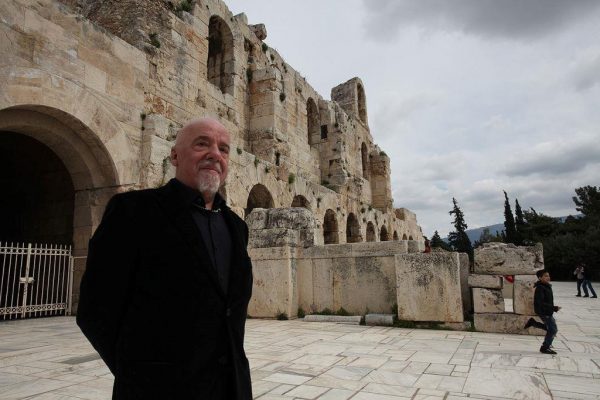Because we got a late start for Hispanic Heritage Month, (it actually started September 15), we are going to spend this whole week, the final week of this particular celebration, featuring Hispanic authors, scholars, educators, and speakers. Next week we’ll get back to celebrating LGBT and Philipino American History.

Paul Coelho was born in 1947 in the Rio de Janeiro, Brazil. When he was younger, he had dreams of becoming a writer. But when he tried to explain this to his mother, she said “My dear, your father is an engineer. He’s a logical, reasonable man with a very clear vision of the world. Do you actually know what it means to be a writer?”
This advice from his mother didn’t dissuade Coelho from pursuing his passion, but he was institutionalized by his family at the age of 17 for these passions. This experience at the institution inspired his 2006 novel Veronika Decides to Die.
After his release, he tried to follow his parents wishes, enrolling in law school. He lasted one year before dropping out to live as a “hippie” throughout South America, North Africa, Mexico and Europe. At the end of this journey, in 1986, he walked the 500 mile Road of Santiago de Compostela in northwestern Spain, a trip that inspired his 1987 autobiography titled The Pilgrimage. This autobiography explained the spiritual awakening he had on his journey and led him towards the path of devoting himself to writing full-time.
Arguably, Coelho is best known for his novel The Alchemist, published in 1988 in Brazil. Initially, they ran a print of 900 copies and decided to not reprint more novels. But, when Coelho moved to a larger publisher and printed his next novel, Brida, sales for The Alchemist skyrocketed. This book became a Brazilian bestseller and HarperCollins decided to print the book in the United States in 1994.
Coelho puts a lot of himself into his works. As he mentioned in an interview for New Idea magazine, “There are no universal truths…But there is a soul of the world. I’m not trying to explain the universe. I believe life is a mystery, and it is better to try to fill our lives with meaningful things than to understand it. I use symbolic language because then you talk to your own soul.”
Coelho’s 2006 novel The Zahir continued to build from his own experiences. As he explained in an article from The New York Times, released in the same year, “Each book is a little bit more about me. What surprises me is when I’m called a spiritual writer. For me, the pursuit of happiness is a lie, as if there were a point when everything changes, when you become wise…I’d have stopped writing years ago if it were for the money.”
Ultimately, Coelho has not let his early experiences in life set him back from pursuing his writing. He had written at least 21 novels, established a virtual Paul Coelho foundation with over 80,000 documents and a physical location of the Foundation in Geneva, and has won countless awards internationally. Paul Coelho continues to publish at the age of 70 and deeply weave his own thoughts and explorations into his writing.